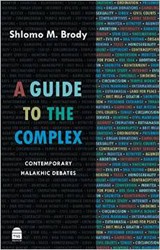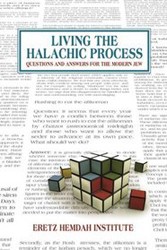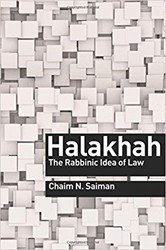Headlines is true to its name; each of the book’s essays is introduced by a news article appearing over the years 2012 through 2014, each outlining an issue unique to contemporary society. The articles and the essays based upon them are divided into six sections: Society, Family, Israel, Shabbat and Yom Tov, Kashrut, and Business. Some of the topics addressed deal directly with aspects of Jewish life and Israeli concerns; others discuss recent events, technological developments, and political situations that, while contextually occurring within general society, nevertheless are considered from the perspective of how these developments directly impact the world that observant Jews inhabit.
The tone and contents of the essays all assume that the reader is conversant with advanced levels of Torah learning. Ranging in length from four to twenty pages, the essays are erudite and technical, beginning with a definition of relevant Halachic questions that the news article poses, followed by a broad discussion of the implications of a wide variety of primary and secondary Jewish sources, and ending with a summary of what might be concluded from the preceding analysis in answer to the original questions.
Some of the subject matter discussed in Headlines is at best theoretical, constituting elaborate Torah-informed mind games. Living in a society comprised mostly of non-Jews, governed by secular law that values the separation of church and state, will inevitably relegate a traditionally observant Jewish onlooker to thinking how a similar situation might be adjudicated were they living in a theocracy driven by Jewish law. The majority of the book, however, is devoted to topics that directly impact the everyday lives of contemporary Jews. Not only the Halachic subject matter and methodology, but also the values that inform the questions and answers within these essays are important emphases to which the reader will hopefully become more sensitized while considering these discussions. In addition to specific, unique considerations raised in each of the essays in Headlines, three particular Jewish values that come into play a number of times are avoiding Chillul HaShem (the profanation of God’s name); pursuing Shalom Malchut (a positive relationship between the Jewish community and the government presently in power); and not being Machzik BeMachloket (knowingly creating discord within the broader community). R. Menachem Genack’s introduction stresses that the contents of this book are intended “to stimulate thought and interest and to serve as a catalyst for further analysis and discussion” rather than as sources for definitive, final Halachic approaches to these various areas of life. Nevertheless, the fact that values such as these three play such a significant role in the author’s overall approach will hopefully encourage readers to similarly apply important ideas such as these to the situations they personally encounter while navigating their own observance within the realities posed by the world in which they live.
Related Content:




